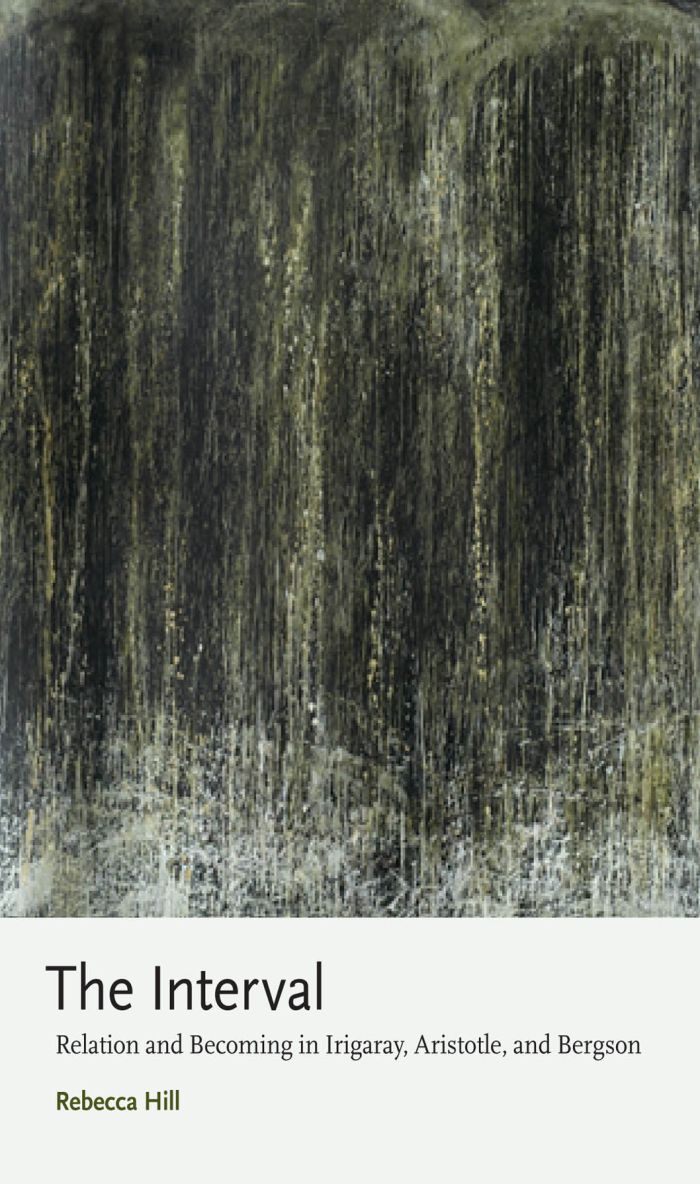The Interval
Relation and Becoming in Irigaray, Aristotle, and Bergson

This book can be opened with

The Interval offers the first sustained analysis of the concept grounding Irigaray’s thought: the constitutive yet incalculable interval of sexual difference. In an extension of Irigaray’s project, Hill takes up her formulation of the interval as a way of rereading Aristotle’s concept of topos and Bergson’s concept of duration.
Hill diagnoses a sexed hierarchy at the heart of Aristotle’s and Bergson’s presentations. Yet beyond that phallocentrism, she points out how Aristotle’s theory of topos as a sensible relation between two bodies that differ in being and Bergson’s intuition of duration as an incalculable threshold of becoming are indispensable to the feminist effort to think about sexual difference.
Reading Irigaray with Aristotle and Bergson, Hill argues that the interval cannot be grasped as a space between two identities; it must be characterized as the sensible threshold of becoming, constitutive of the very identity of beings. The interval is the place of the possibility of sexed subjectivity and intersubjectivity; the interval is also a threshold of the becoming of sexed forces.
The interval is a force of dispersal or difference that is constitutive of identity: it is the necessity of relations between terms. Rebecca Hill has provided a powerful original analysis of the interval in thinking sexual difference and its implications for our thinking about space, time and identity.——Elizabeth Grosz, Rutgers, The State Univeresity of New Jersey
Ostensibly a book on Aristotle, Irigaray and Bergson, Hill's profound meditation on the interval offers a rich and provocative argument regarding the very relation between temporality and being. Anyone interested in contemporary philosophy, including readers who want to experience the complexity of an insightful reading that charts its way between fidelity to authorial intention and conceptual complexity, should read and appreciate this timely text. This book should appeal to readers who are unfamiliar with the philosophy of Luce Irigaray or Bergson as much as to those who would benefit from the original interpretations and connections that Hill offers.——Claire Mary Colebrook, Pennsylvania State University
Through a close and careful exegesis of Aristotle’s analysis of topos and
——Ewa Ziarek, University at Buffalo, The State University of New York
Bergson’s concept of duration, the book proposes an original, ambitious, and much needed philosophical genealogy of one of the most important notions in Luce Irigaray’s feminist theories, namely, that of the interval of sexual difference. The first sustained analysis of the philosophical import and genealogy of the the spatio-temporal interval in Irigaray’s work, Hill’s shows the far reaching implications of this notion for Irigaray’s discussion of embodiment, sexuality, and the politics of relations as such.

